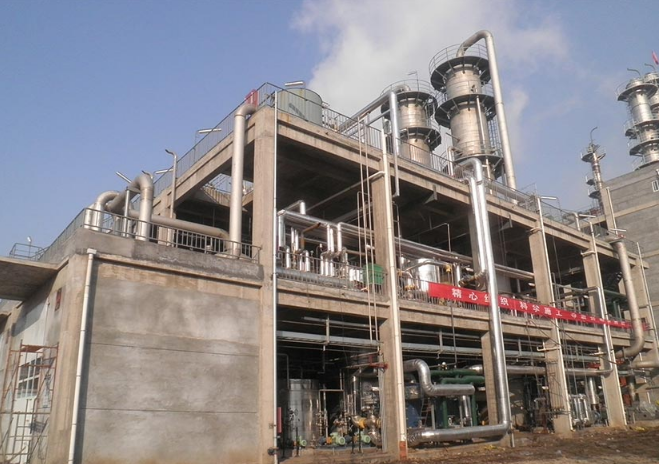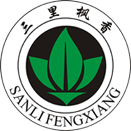Introduction
In the world of occupational health and safety, few chemicals have received as much attention as formaldehyde. As experts in the field, we, SL Tec, are committed to providing you with a comprehensive guide to help you understand what formaldehyde is, its properties, its applications in industry and the health effects of formaldehyde exposure.
●What is formaldehyde
Formaldehyde is a colorless, pungent gas that finds widespread use in various industries. It is a vital building block in the production of numerous everyday products, such as plywood, textiles, and plastics. Understanding the properties and applications of formaldehyde is crucial to managing its potential risks effectively.
●Properties of formaldehyde
Formaldehyde, with the chemical formula CH2O, is a simple but highly reactive compound. It exists as a gas at room temperature and readily dissolves in water. This solubility makes it versatile for various industrial processes. However, it also means that formaldehyde can easily become airborne, posing inhalation hazards to workers.
●Applications in industry
Formaldehyde, a colorless, pungent-smelling chemical compound, has found its way into numerous industrial applications due to its unique chemical properties. While known for its preservative uses in biological specimens and products, formaldehyde serves as a versatile building block for various industrial processes. In this article, we delve into the diverse industrial applications of formaldehyde and its role in shaping industries worldwide.
1. Resin Production:
One of the most significant industrial applications of formaldehyde is in the production of resins. Formaldehyde-based resins, such as urea-formaldehyde, phenol-formaldehyde (phenolic), and melamine-formaldehyde resins, are widely used as adhesives, binders, and coatings in industries ranging from wood processing to textiles. These resins offer excellent adhesion, heat resistance, and dimensional stability, making them vital components in the manufacturing of plywood, particleboard, and laminates.
2. Plywood and Composite Wood Products:
The production of composite wood products, including plywood, particleboard, and medium-density fiberboard (MDF), heavily relies on formaldehyde-based resins. These resins are used to bind wood particles or fibers together, creating strong and stable materials for furniture, construction, and interior design.
3. Textile Industry:
Formaldehyde-based resins find applications in the textile industry, where they are used for finishing and enhancing the properties of fabrics. Resin-treated textiles exhibit improved wrinkle resistance, durability, and colorfastness.

4. Automotive Sector:
Formaldehyde-based resins play a role in automotive manufacturing, specifically in the production of vehicle interiors. Resin-treated fabrics, carpets, and molded parts contribute to enhanced aesthetics, durability, and flame resistance in automobile interiors.
5. Building Materials and Construction:
Formaldehyde-based resins are used in the production of construction materials such as insulation foam, panels, and roofing materials. These resins provide insulation properties, stability, and resistance to moisture and fire, enhancing the overall quality of building components.
6. Oil and Gas Industry:
Formaldehyde serves as a corrosion inhibitor in the oil and gas industry. It helps prevent the degradation of pipelines and equipment by forming a protective layer that reduces the effects of corrosive substances.
7. Pharmaceuticals:
In the pharmaceutical industry, formaldehyde is used as a disinfectant and preservative for medical equipment, vaccines, and biological specimens. It helps prevent bacterial and fungal growth, ensuring the integrity and longevity of medical products.
8. Personal Care and Cosmetics:
Formaldehyde-based compounds, such as formalin or formaldehyde-releasing agents, are used in certain personal care and cosmetic products. They contribute to the preservation and stability of products like shampoos, lotions, and cosmetics.
9. Fertilizer Production:
Formaldehyde is a precursor in the production of urea-formaldehyde resins, which are used as slow-release fertilizers. These fertilizers provide a controlled release of nutrients to plants, improving nutrient uptake and reducing environmental impact.
10. Photographic Industry:
In the past, formaldehyde was used in the photographic industry as a fixative for developing photographs. However, its use has significantly decreased with the advent of digital photography.
11. Leather and Tanning Industry:
Formaldehyde-based chemicals are used in leather tanning to stabilize hides and improve their resistance to environmental factors. This process results in durable and high-quality leather products.
12. Paper and Packaging:
Formaldehyde-based resins are utilized in paper and packaging production to improve the strength, durability, and moisture resistance of paper products.
●Health effects of formaldehyde exposure
Exposure to formaldehyde can have adverse health effects, so understanding and mitigating these risks is critical to workplace safety in these industries.
Short-Term Effects
Short-term exposure to formaldehyde can result in immediate health concerns, such as:
1. Eye Irritation: Formaldehyde is a strong eye irritant, leading to redness, burning, and excessive tearing.
2. Respiratory Distress: Inhalation of formaldehyde can cause coughing, wheezing, and throat irritation.
3. Skin Irritation: Direct contact with formaldehyde may result in skin rashes or dermatitis.
Long-Term Effects
Prolonged exposure to formaldehyde has been associated with more serious health conditions, including: Cancer Risk and respiratory disorders
●Conclusion:
Formaldehyde's multifaceted chemical properties have led to its pervasive presence in various industrial sectors. From resins shaping the construction and automotive industries to its role in pharmaceuticals, textiles, and agriculture, formaldehyde demonstrates its versatility as a foundational component. Despite its significance, it's important to recognize formaldehyde's potential health and environmental concerns, as it is classified as a potential carcinogen and can release harmful fumes in certain conditions. As industries continue to evolve, the responsible and informed use of formaldehyde remains a key consideration in its industrial applications.
If you're seeking a reliable partner to combat formaldehyde in your environment, Hubei Sanli Fengxiang Technology Co., Ltd should be your top choice. Our proven track record and commitment to creating healthier living spaces make them the ideal provider for formaldehyde removal solutions. Contact US today!
Explore [The Insider's Views](https://www.slchemtech.com/guestbook/).














